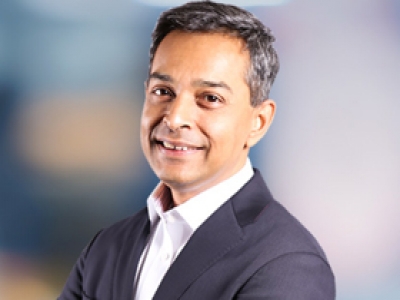When we think of wealth managers, what we think of most often are large organisations and banks. People working in large firms, multiple tiered systems (priority, gold, private banking etc) servicing their niche clients.
The reality, at least in India, is far different. Given the geographical spread, the large affluent and retail segment, over 70% of the Indian wallet is serviced by independent entrepreneurs. This vast “unorganised” sector, comprising over 2 lakh MFDs, 20 lakh insurance agents and over 60,000 CAs address our needs.
They are the “bridge-of-trust” that most of us actually use to help us navigate the volatile, changing and often daunting world of personal finances.
Unlike a salaried employee, they are entrepreneurs – making money only if they show value and continue to show value.
The covid-19 pandemic has also severely affected them. When we spoke to a number of such independent entrepreneurs across metros (Mumbai, Delhi, Bangalore), as well as in Pune, Indore and Jaipur, they provided the following feedback:
- Meetings with prospects and clients not being possible and that has affected growth
- High volatility in not only equity markets but defaults on credit papers affecting client investment plans
- Need to assimilate news and provide actionable insights
- Higher demand from clients to know more about their portfolio and what to do next
- The need to provide for alternate touchpoints of communication (app / video calls / WhatsApp alerts) and more frequent communication
- Definite need to do “smart savings” and do more planning – e.g. health insurance and FDs
Investor habit changes that covid-19 is accelerating
From Hi-Touch to Lo-Touch
Traditional models of wealth management that depended mainly on face-to-face meetings will see a sea change.
Traditionally, wealth management has placed an emphasis on face-to-face, in person contact with clients. However, the shift to a virtual approach has been underway over the past few years. According to a McKinsey survey, as many as 42 million affluent and high net-worth households across the world - including 17 million in Asia - are ideal candidates for non-traditional virtual financial advisory. This trend is going to accelerate at a much faster pace now as digital adoption, starting from work from home models, has significantly improved.
A direct fall-out of this is:
- Need to have digital infrastructure to support interactions – while virtual conferences are easy, other forms of engagement – client apps, WhatsApp alerts etc., would become increasingly necessary
- Execution models would need to become digital from paper based – this will significantly increase as regulators change to increasingly accept digital as a way of life – from eKYC, to opening accounts to execution
- Back-end processes would need to be digitised – which in turn would allow remote and consolidated processing, including from third parties
The positives of these are of course:
- Lower Infrastructure costs – lesser need to have multiple physical locations
- Economies of scale – allowing automation to reduce costs
- Wider out-reach – do more, with more clients
Anchoring around the known
Forging new relationships in a Lo-Touch environment is going to become increasingly difficult. People would tend to do more with people they already trust – anchoring around this to both articulate more of their needs and seeking to help address them.
This of course means that there is a significant opportunity to increase “Share-of-wallet” from existing clients by offering them more products and services. Data-mining and strategic collaboration will help identify areas that existing “bridges-of-trust” can be expanded.
This change would mean:
- Need to up-skill by wealth managers
- To increase the products and services that they have been offering and
- Have the ability to consolidate advise, execution and monitoring
Volatility and coping with it
The recent past has wiped out most of the gains that investors saw over the past 3-4 years. This was not only in equities but also in fixed income due to the credit defaults that have happened.
This has been compounded by the constant barrage of news flows, which often leads to decisions being made that are not in keeping with long term objectives. For e.g. there was a lot exit from equities in expectation of doomsday. The entre rally, since the lows, was missed out as a result.
The sharp rise in the value of some things – e.g. gold, after a hiatus of almost 7 years, also showed the need to have diversification across asset classes. Not to mention stocks like Netflix, that have shot up in value in the current situation.
This will increasingly lead to clients wanting:
- Better financial planning, anchored around their actual risk profiles
- More monitoring of their portfolios, giving almost real-time actionable insights
- Demonstrated value-add for continuing to get their business
Conclusion
The wealth industry was experiencing a period of rapid change prior to global covid outbreak, with widespread consolidation and a move towards digital solutions. If anything, the current crisis appears to have accelerated these changes.
We feel that the present disruption and investor habit changes will result in the landscape of wealth management changing – with the Independent entrepreneurs having an edge over organised players. This is primarily because of the speed of adaption to changes would be much higher by more agile independents, aided by new age fintech platforms. Both cost reduction and major delivery changes will be much more difficult for organised players having to deal with high over-heads, legacy systems and high corporate overheads.
In the post-covid world, we expect more independent financial entrepreneurs, who are more digital led, collaborative, and addressing a wider range of potential customers.
George Mitra is Co-founder and CEO of Fintso. The views expressed in this article are solely of the author and do not necessarily reflect the views of Cafemutual.






